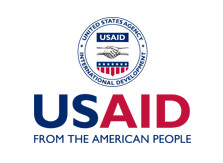(Back)
Approach to Implementation
Interactive Radio Instruction
COMPASS uses radio broadcasts to assist teachers with lesson instruction in their classrooms. The broadcasts are in the native Hausa language for primary classes one and two and in English for primary classes three through six. COMPASS’ goal, by the third year of the project, is to broadcast 90 math and literacy programs, reaching approximately 10,000 teachers and 500,000 students.
In-service Teacher Training
More than 16,000 teachers from 1,400 Islamiyya and public primary schools are rapidly improving their teaching skills through COMPASS cascade trainings. The training ensures full adoption and compliance with the Basic Quality Standards of Education for primary teachers and school administrators.
Pre-service Teacher Training
COMPASS has organized trainings for lecturers at universities and colleges of education on the use of the internet and instructional materials development. Also, nearly 500 College of Education students have received scholarships in an effort to encourage an interest in Primary Education Studies.
Instructional Materials Development
COMPASS helps teachers produce classroom materials and resources that can be made at no cost or purchased inexpensively within their communities. This ensures that more students will have access to the tools they need to excel in the classroom.
School Health and Nutrition
Recognizing that schools can play an important role in preventing and treating childhood diseases, COMPASS trains teachers and school officials in how to administer deworming drugs and micronutrient supplements. 150,000 students will benefit from the deworming medicine, including 7,500 who will be treated for the waterborne disease schistosomiasis, and 30,000 children will receive vitamin A supplements.
Community Mobilization
COMPASS collaborates with more than 300 Parent-Teacher Associations (PTAs) to improve school environments. Improvements include building new latrines, furnishing classrooms, purchasing library equipment, installing classroom dividers, repairing roofs, replacing broken windows and doors, and installing pumping machines for drinking water. The project also trains PTA members in identifying and prioritizing school needs and managing resources for general improvements. Throughout the life of the project COMPASS will continue to work with PTAs to improve the quality of teaching and learning with a special emphasis on creating girl-friendly teaching environments.
Expected Results
With the implementation of stronger teaching methods, combined with community support and a safe, stimulating student environment, greater student success can be attained including:
- A steady increase in pupil enrollment, retention, and achievement;
- School environments fostering girls’ participation;
- Teachers applying best practices to improve the quality of their work;
- PTAs addressing quality issues in primary schools; and
- Communities and local governments actively working to improve access to quality education.
|
